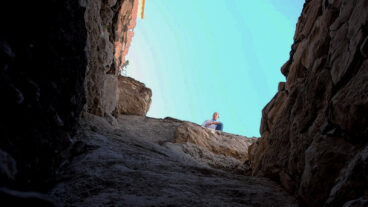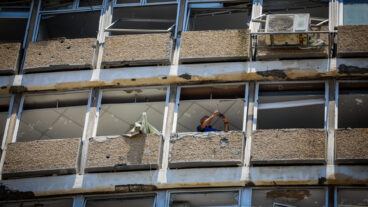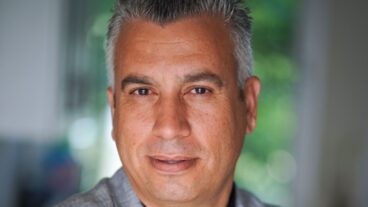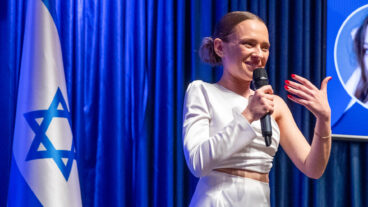Green activist, Mohammad Rabah Aghbarieh, Northern Triangle unit director, hopes to help spread the environmental message.Americans have been tuned into environmental issues for decades. Influential activists like Rachel Carson who penned The Silent Spring, exposed the dangers of pesticides and pollution to the land in the early ’60s. Since then, Americans have been leaders in the global environmental movement.
Israel has benefited from America’s early start and taken some issues a step further. Monumental figures in Israel’s green movement, such as Alon Tal – an American import to Israel – have brought with them education and expertise from the US to start new organizations, and push the green movement to the mainstream in Israel.
While “green” is now seeping into Israeli society, from groundbreaking R&D developments in clean technology to local educational programs on recycling, the Israeli Arab community lags behind. But that, thanks to a new initiative, is about to change.
In a groundbreaking event last month, 50 Israeli Arab imams (Muslim clerics) gathered in Umm el-Fahm, Israel, to listen, learn, and debate on the environment. Israel’s Ministry of Environmental Protection, an organizer of the conference, is hopeful that the material and message – including a CD, posters and stickers citing references to the environment in the Koran – will spread beyond Israeli mosques to neighbouring Middle East nations, where environmental issues are seriously neglected.
Robert Reuven, the Environmental Protection Ministry head of Haifa District said that he plans on distributing the educational CD, in Arabic, to Muslim communities everywhere. “We would be happy if they [the imams] could spread the message to other Arab countries,” Sharon Achdut, the Ministry’s spokesman told ISRAEL21c.
Different Shades of Green
One issue the Ministry wanted to address was the growing complaints of noise pollution emanating from religious Muslim communities, says Achdut. The mosques’ daily calls to prayer are using loudspeakers, which disturb some residents.
The Ministry sent the message, says Achdut, that of course the mosques can continue their transmissions, but that they should take the noise level down a notch. The imams also got an opportunity to vent their concern over the proximity of chicken coops in neighboring Jewish communities, and the proximity of cellular phone antennas to their homes. Other issues covered included talks on construction waste, water pollution and sewage treatment.
“I think it was a success,” says Achdut. “Just the fact that we could collect these imams together [to listen to the green message] made it a success.”
Sponsored by Israel’s Environmental Protection Ministry, the Interior Ministry’s Islamic Administration and Religions Department, as well as the Environmental Quality Unit Northern Triangle, organizers saw the “Imams of the Mosques Conference – Islam and Environmental Protection” as an important stepping-stone to improving the quality of the environment in Israeli-Arab towns.
Northern Triangle unit director Mohammad Rabah Aghbarieh, a green activist and Israeli Arab, helped prepare material for every imam to take home.
Rabah Aghbarieh told ISRAEL21c that the event “as a concept” should be replicated and adopted by the rest of the Muslim world. He was proud to report, that only one day after the conference the message was getting sent to Israeli Muslims on their holy day, Friday: “A day after the conference ended imams were already talking to people in their communities,” he says happily.












